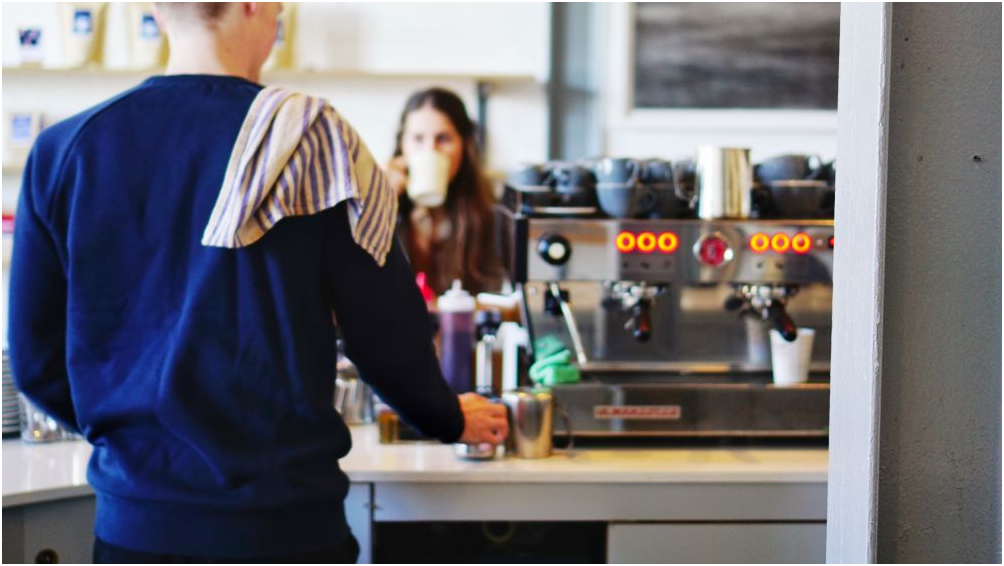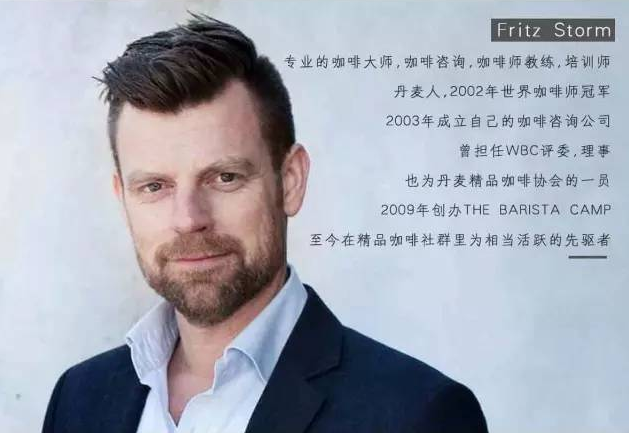James Hoffmann interview
James Hoffmann interview
Coffee Map of by Walking
Square Mile Coffee Roasters's CEO,James Hoffmann recently visited Shanghai, China. Walking Coffee Map, a partner of BlackWaterIssue, interviewed him. Through this interview, you can feel the broad horizons of James.
What does it mean for you to win the WBC championship in 2007? What impact does this have on you and your coffee career?
JAMES: the biggest impact is that, for me, winning the championship in Tokyo was the starting point for me to start learning more. When I won the championship, more and more people began to want to talk to me, I think this is a very good thing. I like to communicate with people and establish connections. For me, making money is definitely not the main thing. I'm not saying it's not important. It's just that there are ways to make money anyway. What is more important to me is that I can talk to more people and make connections with guests or other coffee practitioners.
And after that game, we set up Square Mile Coffee Roasters, which probably had the biggest impact on my coffee career. My idea was to set up a baking company directly after that competition. I didn't think I could win the championship at that time. Because I made some low-level mistakes in the first round, I thought I just had to get into the final round like I did last year, and then I wouldn't compete again, so anyway, that was the last time I took part in the WBC. But because of winning the championship, we traveled around the world with the WBC staff for more than a month, so it was two months after the game that we started Square Mile Coffee Roasters. There is still a gap between this. But I am still very happy to win the championship.
Q: so do you have any plans to participate in the WBC or other competitions after that?
JAMES: I also participated in a lot of other competitions after that, including cooking, baking and cup testing, and all of them got good results. I think that's enough for me. I've got enough from that win. I want to leave this opportunity to others. After all, it only happens once a year. At that time, in 2007, I was determined to participate in the WBC for the last time. I was in Tokyo at that time, and I wanted to go, and I felt that I could still enter the final round, which was enough for me. After all, participating in the competition is indeed a waste of money and money.
Q: what about the referee?
JAMES: well, I've been a referee, too. But I don't think this profession is very suitable for me. Being a judge is a very stressful job. I need to put on a poker face. I can't talk or laugh. But I look too fierce when I keep a straight face. It may put pressure on the players. I have been a judge several times, and I have coached a lot of people to participate in the competition. I think this is the end of the matter, and let the people who are more suitable and in need do it.

Q: do you think it is necessary for a barista to participate in the competition, especially the WBC?
JAMES: definitely not. I don't think anyone has to force themselves to take part in the competition. WBC is such a costly game. And many people are not used to making coffee and making speeches in front of many people, which is too stressful for many people. If you have the opportunity and you are good at it, it is a lot of exercise and fun to participate in the competition. However, no one needs to force themselves to take part in the competition. For a barista or anyone in the coffee industry, the most important thing is to make coffee and be who you are, not to compete and get a place.
Are the main customers of Q:Square Mile Roasting serving beans to guests or coffee shops?
JAMES: mainly coffee shops. Although we sell beans on the website, the most important thing is the coffee shop. The proportion of one month's sales sold to retail customers through the website is very small.
Does Q:Square Mile have any plans to open a coffee shop?
JAMES: no. We welcome guests to our studio, where we will entertain them no matter what freshly baked coffee we have. But we don't sell coffee, and guests can't order, so we only need one person to take charge of this every day. I think it's better this way. We concentrate on baking the beans to the best, and don't have more energy to open a store.
Q: do you think self-baking is important for coffee shops?
JAMES: I don't think this is necessary. It's mainly due to the conditions. For example, in London, it is very difficult to find a place to meet the requirements. It is troublesome to put a large baking machine, find a way out of the flue and get permission. It's OK to have a small roaster. Indeed, it's very good to provide guests with coffee made from the freshest beans every day. But taking into account the volume of production, is a small coffee maker enough? If the quantity of products produced every day is not much, I think it is not impossible. But as I just said, we don't want to open a coffee shop. I think it might be more cumbersome to bake at home. I once had a client who had been using our beans and then became obsessed with baking, but a few months later, he came to me and asked me if I could still use my beans. In fact, he produces a lot of products, and his own baking will not lose money at all, but he will find it troublesome for a long time.
In fact, I always thought it would be nice if there was a special baking studio in the city, such as renting for a few hours at a time and baking for a week, which would be the most economical. But it must be in a convenient place in the city, otherwise it will go up again if the cost of transportation is added to the suburbs. So this idea has not been realized yet.
Q: now many new boutique coffee shops open every day, but there are also many coffee shops that can't operate and close down every day. What do you think of the boutique coffee market?
JAMES: it's the same in London. Many new stores are opened every day. When I first won the championship, I didn't really like going to the coffee shop for coffee. If the barista saw me going, it would be very stressful. But now because there are too many coffee shops, I can drink coffee like an ordinary person again.
I think people's understanding of the boutique coffee market may be slightly limited. Now we always attract customers who already like coffee and have some knowledge of coffee. If there is only this part of the customer, but the number of coffee shops continues to increase, it will inevitably lead to a situation of too many people in short supply. I think the most important thing is to attract more people who don't understand coffee shops at all. for these customers, they may really just think that coffee is no different from other drinks. They don't care if it's a single item or something. We can't keep speaking languages that only people who know coffee know, and doing things that can only attract "unusual" guests. This is where Starbucks coffee chains are powerful. They attract not only coffee drinkers, but a broader market.
Q: what do you think of Rose Summer?
JAMES: I think the advantage of Rose Summer is that for the first time, people are willing to pay such a high price for coffee beans, which is very good news for coffee farmers. Rosa is indeed unique, showing a completely different tonality from the environment in which she grew up. But the bad thing is that people like to use Rose Summer in all kinds of competitions now, which makes people feel a little boring. I always like new and interesting things. And for guests, I think Rose Summer is coffee drunk by people who really understand coffee, but it doesn't mean much to "ordinary" consumers.
Important Notice :
前街咖啡 FrontStreet Coffee has moved to new addredd:
FrontStreet Coffee Address: 315,Donghua East Road,GuangZhou
Tel:020 38364473
- Prev

SAMPLE COFFEE ROASTERS interview in Sydney
We like to try as many different coffee because you never know when you will stumble onto a gem-Sample coffees owner, Reuben We like to try as many kinds of coffee as possible, because you may find the treasure!-Sample coffee's boss Reuben Q) Please introduce Sample Coffee.
- Next

World champion Fritz Storm tells you why boutique coffee is so expensive for consumers.
Following Kaiping (Wechat official account vdailycom) found that Beautiful Cafe opened a small shop of its own. Why is boutique coffee so expensive for consumers? Is it acceptable and sustainable to sell in a coffee shop five times more expensive than a supermarket? Let the world champion Fritz Storm tell you 1.-Talking about pricing. Why does specialty coffee have
Related
- What is the meaning of lactic acid fermentation with coffee bean treatment?
- How to judge the state of foam by sound?
- How does the latte pull out the unicorn pattern? Come to get for a little trick to improve the flower pull!
- Will flower pulling affect the taste of the latte?
- Do you know the history of coffee?
- The difference between honey treatment and sun washing what is raisin honey treatment?
- What kind of milk can a novice use to make coffee foam to keep the foam longer? The correct method and skills of milking tutorial sharing
- Why do washed coffee beans taste sour? Flavor characteristics of washed Coffee
- Introduction to the skill of how to practice the size and height of water injection around the circle of hand-brewed coffee
- How do beginners practice coffee flower drawing from scratch?

